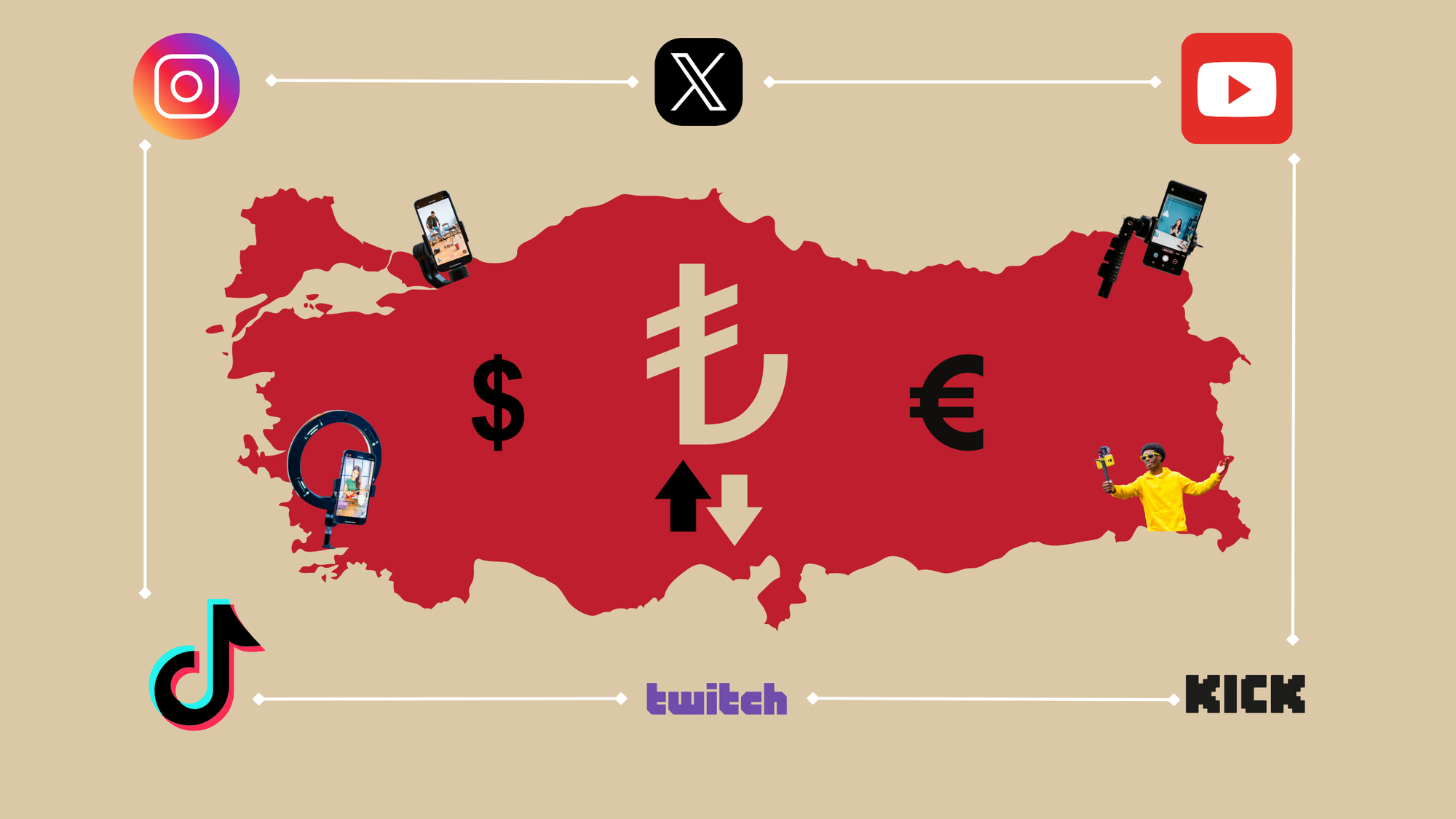Economic Motivations Driving Content Entrepreneurship in Turkey

How do economic challenges, particularly Turkish Lira depreciation and inflation, affect creators’ income and operational decisions?
Topic
This study investigates the economic motivations behind content entrepreneurship in Turkey. It focuses on how Turkish content creators navigate financial challenges such as inflation and currency devaluation while pursuing monetized digital careers. By analyzing creators’ income strategies, platform preferences, and their dependence on foreign currencies, the study offers insights into how economic pressures shape digital entrepreneurship in a volatile emerging market.
Relevance
With the rise of the creator economy, understanding the specific economic motivations behind content entrepreneurship is crucial for brands, platforms, and policymakers. In a country like Turkey, marked by high inflation and a depreciating currency, creators’ financial strategies are not just business choices but survival tactics. Recognizing these dynamics can help practitioners build more effective partnerships, business models, and support systems for creators in emerging markets.
Results
This study reveals that economic instability is one of the primary drivers of content entrepreneurship in Turkey. Among the interviewed content creators, many view this industry as an alternative to limited conventional employment opportunities and the volatile macroeconomic conditions in Turkey. Strategies like earning in more stable currencies like USD or EUR, diversifying income sources through platforms and sponsorships, and presence in multiple platforms are prevalent.
Implication for Practitioners
- Brands should offer flexible and fair long-term partnerships to match creators’ need for income stability.
- Platforms must improve revenue models and payment structures to retain creators facing currency devaluation.
- Policy-makers could support entrepreneurship by offering financial literacy programs tailored to digital creators.
- Agencies should recognize that financial motivations are as important as creative freedom in attracting and retaining talent.
- International collaborations are highly attractive for Turkish creators due to currency advantages and market expansion.
Methods
This study uses a qualitative-oriented mixed-methods approach. Primary data was collected through in-depth, semi-structured interviews with eight Turkish content creators, selected via criterion sampling. Participants completed a pre-interview survey covering demographics, platform focus, and income sources. Interviews, conducted online between February and May 2025, lasted 30 to 90 minutes and explored motivations, monetization strategies, and economic challenges. Data was analyzed using open and focused coding, combining Taguette software and manual methods. Ethical standards were upheld, with informed consent obtained and participant anonymity ensured throughout the research process.
